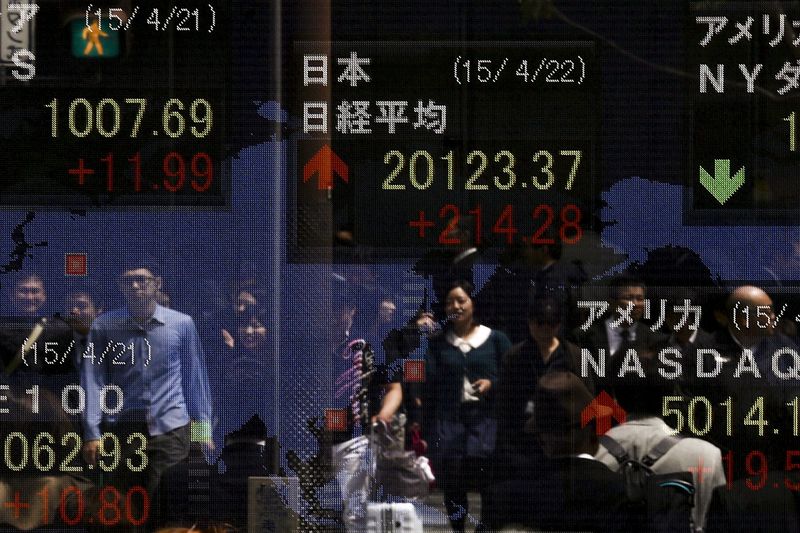This post was originally published on this site
https://i-invdn-com.akamaized.net/news/LYNXMPEB3M001_M.jpg
Investing.com – Asian markets were mixed on Friday morning, with ever-rising COVID-19 cases the main driver. China is also to bring in new national security export laws, causing investor uncertainty.
China is to promulgate a new national security law controlling what it deems to be sensitive exports. The new law is likely to take a similar form to that of the U.S. Department of Commerce’s Entity List, whereby certain companies and entities are prohibited from receiving certain technologies and strategic materials.
The exact mechanics of this law are yet to be public, and investors are uncertain as to quite how it will affect international trade. Companies are wary about how they will deal with the competing national interests of China and the U.S.
China’s Shanghai Composite was up 0.31% at 11:09 PM ET (3:09 AM GMT) and the Shenzhen Composite fell 0.47%.
In Australia, the SS&P/ASX 200 was down 0.32% and in South Korea, the KOSPI fell 0.58%, after a quick opening fall and rally.
Hong Kong’s Hang Seng Index gained 0.72%.
Japan’s Nikkei 225 returned to parity after an early fall, inching up 0.03%.
The U.S. COVID-19 stimulus response once again produced uncertainty in markets, with yet another offer from U.S. President Donald Trump. However, few investors are expecting a deal to passed before the Nov. 3 elections. The new deal is larger than previous offers, giving some investors confidence in the size of the final package.
A rise in U.S. jobless claims also gave cause for concern about economic recovery. 898,000 Americans claimed unemployment over the past week, higher than the 825,000 claims forecast and hitting a two-month high.
“The market’s on again off again love affair with an impending stimulus torrent masks the fact that investor uncertainty is bristling ahead of an expected choppy period in terms of headline risk, including Brexit, the U.S. election, and perhaps the most horrifying troubles of all, the second wave of the coronavirus that could trigger more intense lockdown worries,” Stephen Innes, global chief market strategist at AxiCorp, told Reuters.
COVID-19 continues to ravage the global economy, with no end in sight as global case numbers continue to rise, and a second wave strikes Europe and the U.S. Global cases have now reached 38.8 million, with deaths passing the 1.1 million mark, according to Johns Hopkins University data.
“There’s a bit of worry there and also at what we’re seeing in America and in Europe regarding the virus and how it seems to be taking hold pretty significantly again,” Grant Williamson, investment adviser at Hamilton Hindin Greene, told Reuters.

